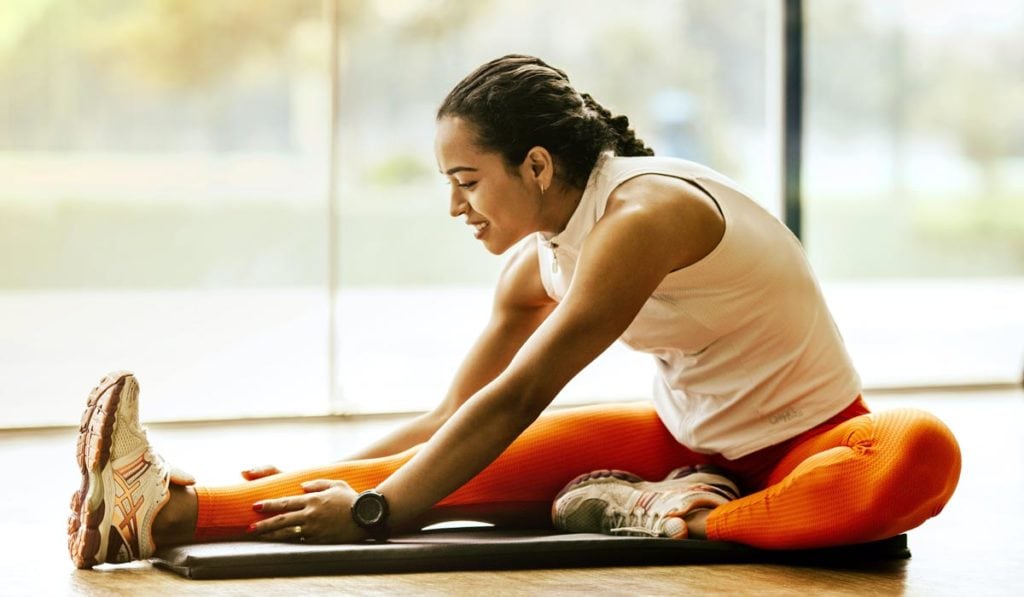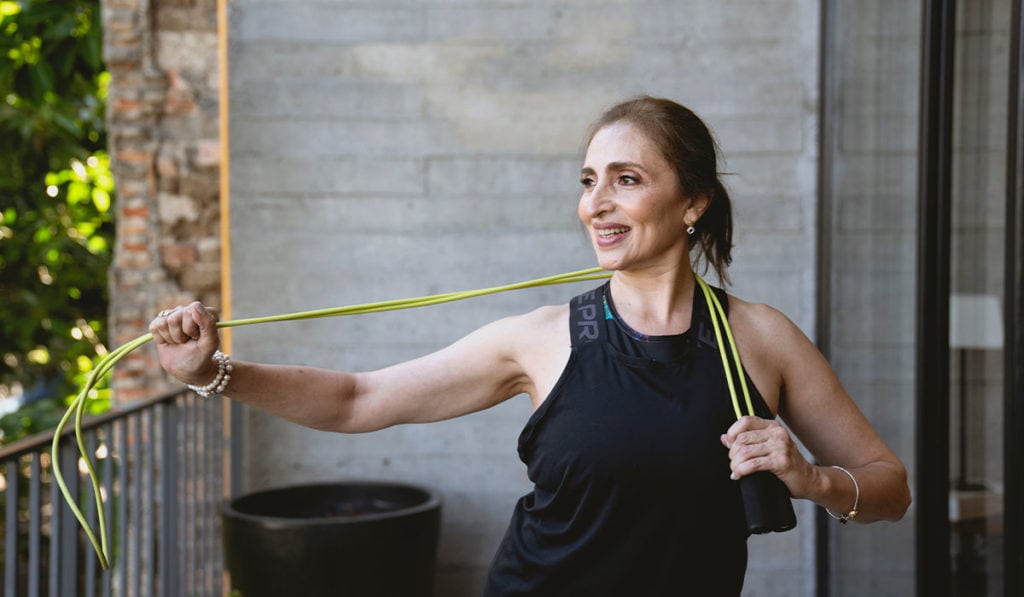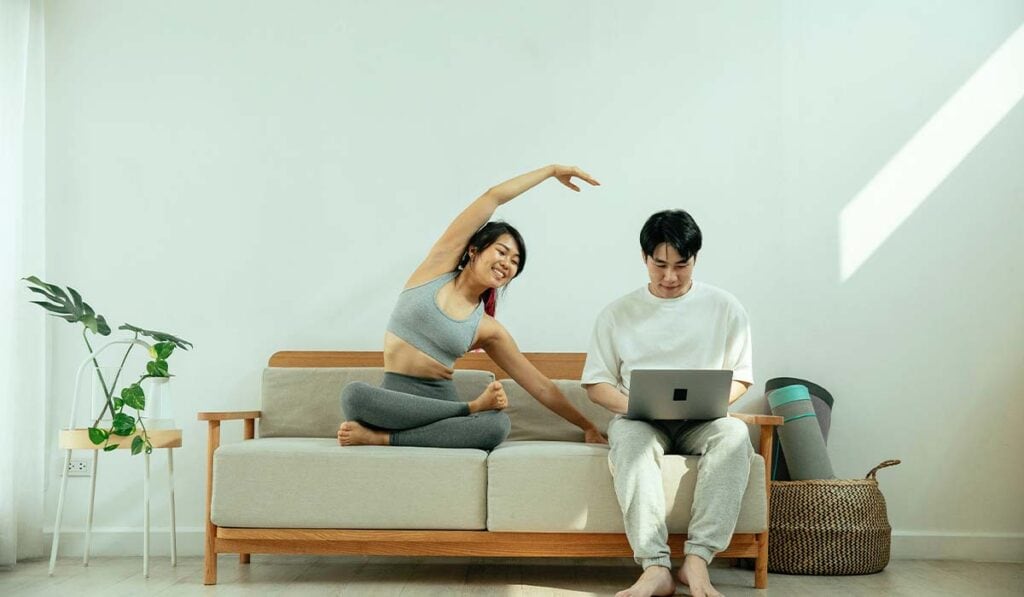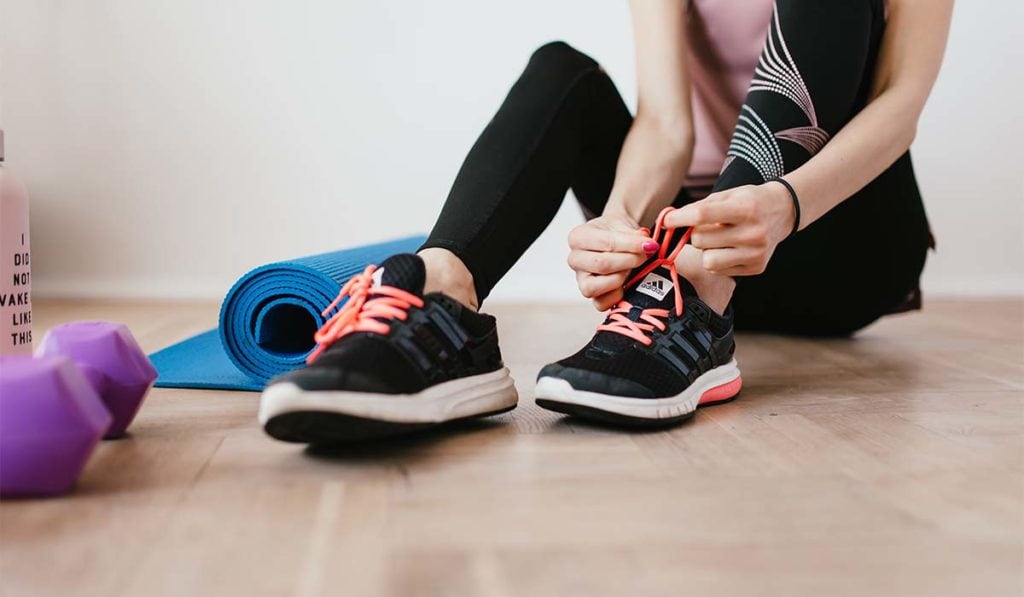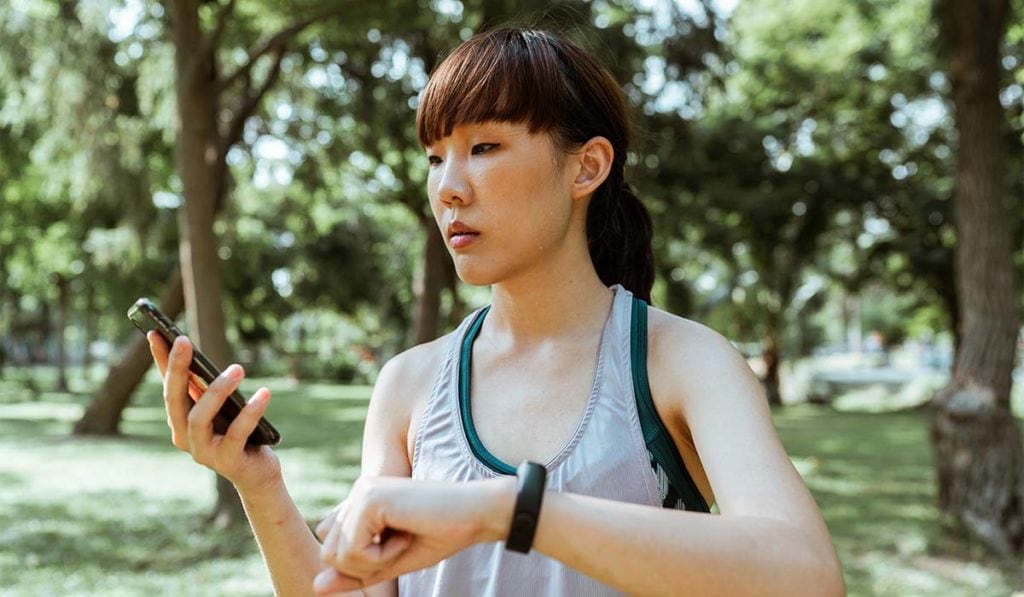
When Is The Best Time To Exercise?
It’s no secret that finding the time to exercise can be a challenging endeavor. However, creating a solid routine will make it much more manageable! If you’re trying to determine the best time of day to exercise with Vingo, here’s what researchers have found to be true about AM and PM exercise routines.
Is it better to exercise in the morning or evening?
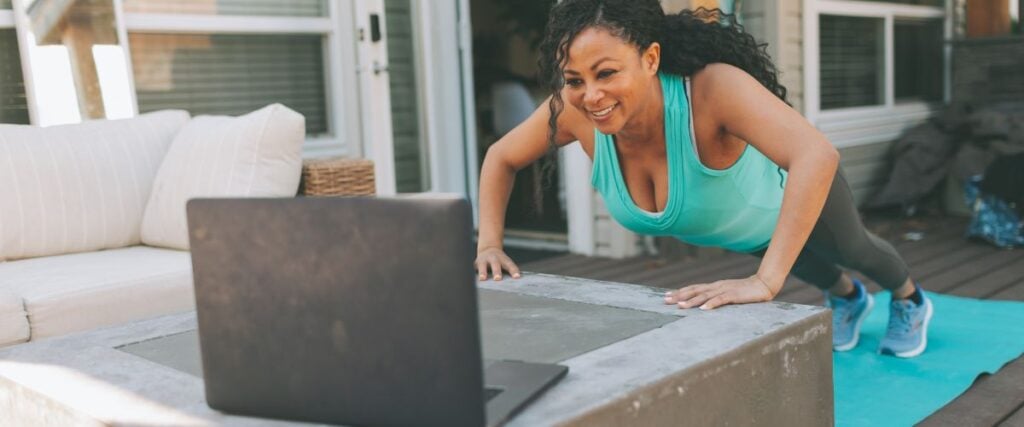
We wish there was a straightforward answer to this, but there’s not. The truth is, it depends.
Several factors play into determining the best time of day to exercise, including your daily schedule, lifestyle, and individual factors like whether you’re a morning person or not.
Instead of asking which is better, we recommend rephrasing the question and asking yourself, “What time of the day works best for me to exercise?” You might come up with a very different answer!
To help you decide, let’s look at the main benefits of morning workouts, as well as exercise that’s done later in the day.
What are the benefits of working out in the morning?
No matter how you slice it, morning workouts are highly effective. Exercising early in the morning may help you maximize your benefits and get the best weight loss results. Although we know this might not be what you night owls wanted to hear, the science backs it with the following proven benefits.
Morning exercise burns more fat.
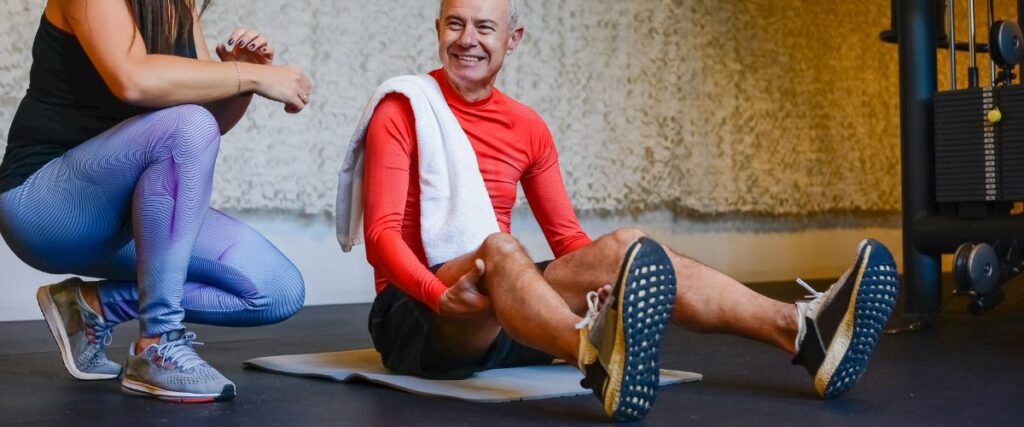
When you exercise first thing in the morning, particularly on an empty stomach, your body is primed to burn stored fat, translating to weight loss. You also have higher levels of cortisol and growth hormone in the AM hours, which makes it easier to burn fat. This is why many people argue the morning is the best time of day to exercise.
However, a new study published in Frontiers in Physiology found that women may burn more fat in the early morning, while men may burn more at night. The study also found that women who want to improve their blood pressure may get better results from morning exercise. (An added perk!)1
Morning exercise also increases your metabolism, so you’ll continue to burn more calories throughout the day.
Working out in the AM reduces your appetite.

If you struggle with overeating, morning workouts may help you cut back during the day. Research indicates 45 minutes of moderate to vigorous exercise in the morning may help decrease your motivation to eat more food throughout the day.2,3
To clarify, exercise should still help you maintain a healthy appetite, but you’ll be less likely to binge or overeat, resulting in the consumption of excess calories that may add to your waistline.
It’s better for your internal clock.
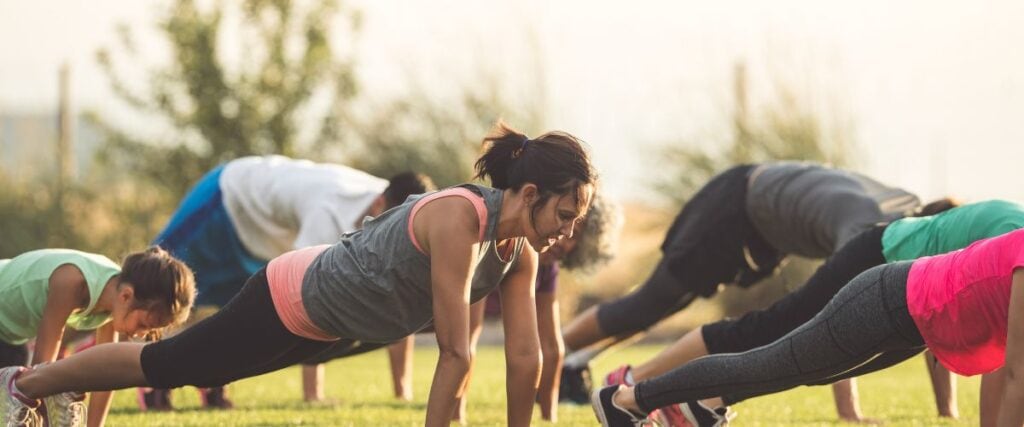
When you regularly exercise first thing in the morning, your circadian rhythm (or your internal body clock) will adjust to the changes, and you’ll start to feel more alert earlier in the day and get sleepy earlier at night.4
Some research has also indicated that exercising at night can put a damper on your sleep quality. On the contrary, working out in the morning may also help you sleep better at night and feel more rested and energized during the day.5
Although you may need to adjust your schedule to accommodate this, it will help you maintain an early morning workout schedule because it will be easier to get to bed on time. Plus, it won’t feel as hard to roll yourself out of bed in the morning for an early workout, especially if you sleep in your workout clothes!
It may be easier to stick to it.

Although morning may be the best time of day to exercise, establishing a routine of getting up earlier to exercise can be rough, especially if you’re not a morning person. But researchers have found it’s often easier to stick to healthy habits like regular exercise if you do it earlier in the day.6
If getting up early to run or bike isn’t your thing, try implementing the following tips to make it easier:
- Cut out afternoon caffeine or nighttime alcohol consumption.
- Reduce excessive light at night from electronics.
- Go to bed earlier.
- Consistently wake up at the same time every day.
- Keep your alarm far from your bed, so you’re forced to get up instead of hitting snooze.
- Open your curtains to expose yourself to early morning sunlight.
- Set several different alarms.
What are the benefits of working out in the afternoon or evening?
Although there are a lot of benefits to working out in the AM, if you prefer the afternoon or evening, there are still plenty of perks. And afternoon or evening may be the best time of day to exercise after all.
You get to sleep in.
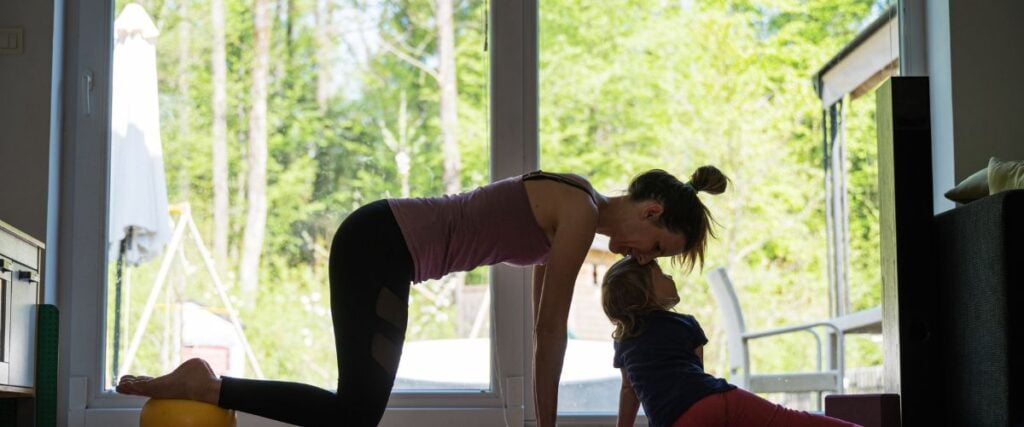
This is one of the most obvious benefits of afternoon or evening workouts, and it’s often the most motivating for many people. If you really struggle to wake up early, and it doesn’t jive well with your internal clock, don’t force it! Instead, work with your natural inclinations and prioritize afternoon or evening exercise. For some people, it just works out better this way, and there’s nothing wrong with that.
Your body is primed for physical activity in the afternoon.
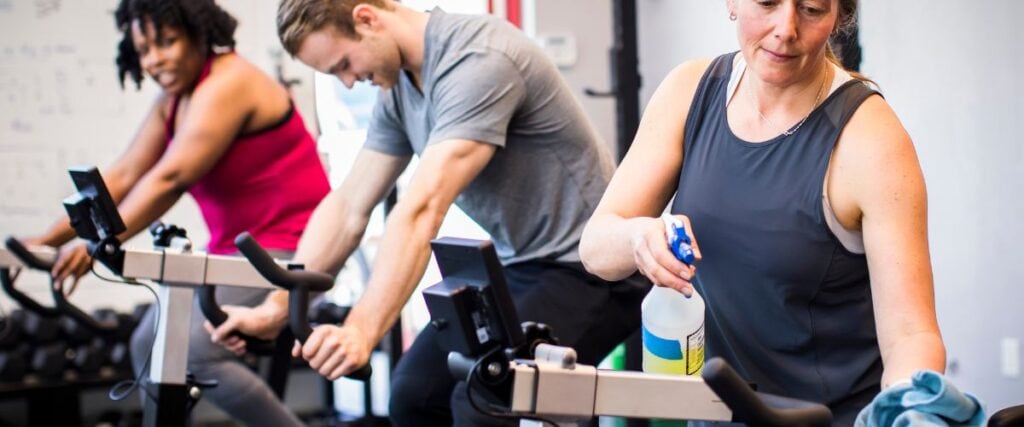
Instead of working out at very low intensity in the morning (due to excessive sleepiness), exercising in the afternoon may be more effective when your body is most primed for physical activity.
One research study claims your body performs best in the afternoon when your internal temperature is at its highest. A higher temperature improves muscle function, strength, and endurance during exercise.7
Your reaction time is also better in the evening, making HIIT, speed drills on the treadmill, and other high-intensity exercises more achievable. (If you tend to dread these types of workouts, try scheduling them for the afternoon or early evening for the best possible experience.)
And finally, in the evening, your body uses energy more effectively than it does in the morning, so you might even get better results with a shorter workout in the afternoon rather than a longer one in the morning.
Afternoon workouts reduce your likelihood of related injuries.
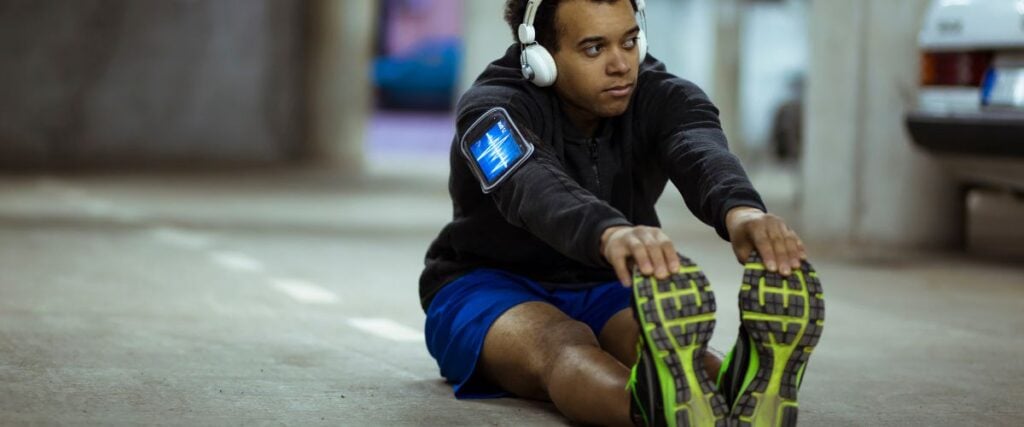
Frequent injuries can make it hard to stay committed to a consistent workout routine or make any progress toward your fitness goals. However, scheduling afternoon or evening workouts may be the answer. During these times of the day, your heart rate and blood pressure are at their lowest, improving physical performance and decreasing your chances of getting injured while working out.
Evening exercise is re-energizing.
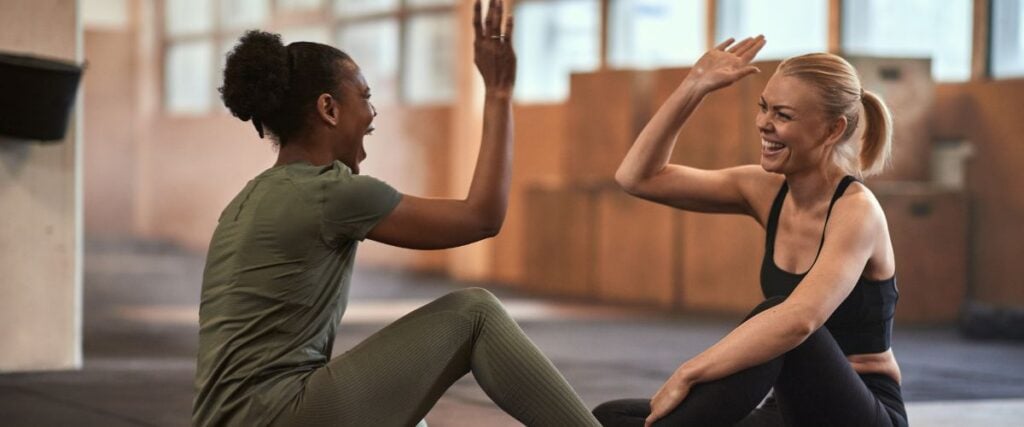
If you tend to get a bad case of the afternoon sleepies every day, an afternoon exercise routine might be your saving grace. Instead of reaching for a cup of coffee as a pick-me-up, grab a set of dumbbells and a yoga mat or jump on the treadmill or exercise bike.
Research indicates exercising in the afternoon or early evening can provide an energy boost that may help you get through that slumpy part of the day. Taking a break from work tasks for a quick workout can also help you re-focus mentally, which might be particularly helpful if you work from home and tend to lose focus toward the end of the day.4
Evening workouts can support your weight loss goals by decreasing hunger.

Just as morning exercise can help you lose weight, the same applies to a regular afternoon or evening fitness routine. One research paper published in the Journal of Experimental Physiology concluded that, contrary to popular belief, nighttime workouts may not disrupt your sleep as much as we initially thought.8
Additionally, consistent evening exercise can help you shed pounds and maintain a healthy weight by decreasing ghrelin levels in your body, a hormone that increases feelings of hunger.8
How to time your workouts for better results
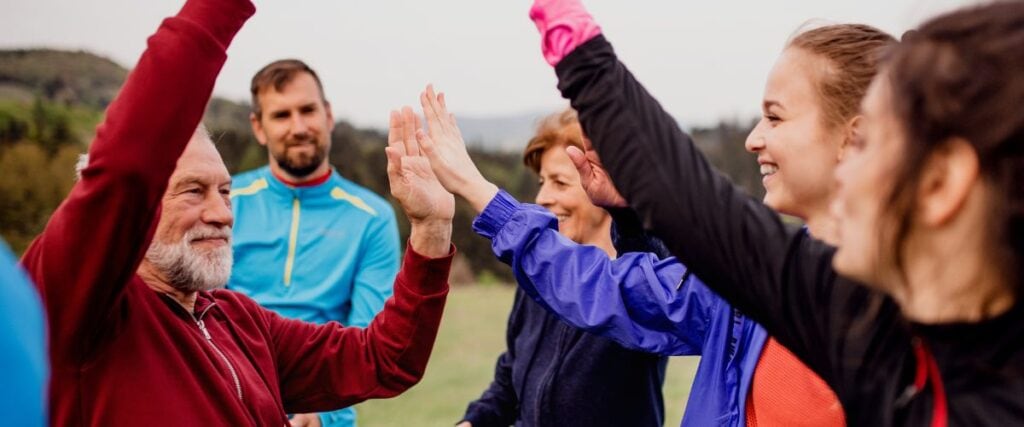
As it turns out, the key to determining the best time of day to exercise is more about checking in with your body and yourself than anything else.
When do you feel best exercising? What health goals do you have? And which benefits are top priority in your eyes?
Whether exercising in the morning, afternoon, or evening works best for you, the best advice we can give is to find what works for your lifestyle and stick with it. If that means working out first thing in the morning, find a way to make it happen consistently. Or, if you need to exercise while your kids are at school in the afternoon because that’s when you have the time, your body will still thank you!
Fortunately, Vingo makes it easy to exercise at any time of the day or night with convenient and fun at-home workouts that take you across the globe on exciting adventures!
Key Takeaways:
The best time of day to exercise will vary from person to person. While there are specific physical and psychological benefits to working out in the morning, afternoon, and evening, you’re most likely to stick with it when you find what works best for your lifestyle, schedule, and personal preferences.Sources:
- Arciero, P. J., Ives, S. J., Mohr, A. E., Robinson, N. D., Escudero, D., Chen, X., Rose, K., Minicucci, O., O’Brien, G. C., Curran, K., Miller, V. A., He, F., Norton, C., Paul, M., Sheridan, C., Beard, S., Centore, J., Dudar, M. D., Ehnstrom, K., . . . Yarde, A. (2022). Morning Exercise Reduces Abdominal Fat and Blood Pressure in Women; Evening Exercise Increases Muscular Performance in Women and Lowers Blood Pressure in Men. Frontiers in Physiology, 13. https://doi.org/10.3389/fphys.2022.893783
- Exercise may affect food motivation. (2012, September 12). ScienceDaily. https://www.sciencedaily.com/releases/2012/09/120912161554.htm
- Hanlon, B., Larson, M. J., Bailey, B. W., & LeCheminant, J. D. (2012). Neural Response to Pictures of Food after Exercise in Normal-Weight and Obese Women. Medicine and Science in Sports and Exercise, 44(10), 1864–1870. https://doi.org/10.1249/mss.0b013e31825cade5
- Youngstedt, S. D., Elliott, J. A., & Kripke, D. F. (2019). Human circadian phase–response curves for exercise. The Journal of Physiology, 597(8), 2253–2268. https://doi.org/10.1113/jp276943
- Fairbrother, K. R., Cartner, B. W., Alley, J. R., Curry, C. D., Dickinson, D. L., Morris, D. L., & Collier, S. R. (2014). Effects of exercise timing on sleep architecture and nocturnal blood pressure in prehypertensives. Vascular Health and Risk Management, 691. https://doi.org/10.2147/vhrm.s73688
- Fournier, M., D’Arripe-Longueville, F., Rovère, C., Easthope, C. S., Schwabe, L., Methni, J. E., & Radel, R. (2017). Effects of circadian cortisol on the development of a health habit. Health Psychology, 36(11), 1059–1064. https://doi.org/10.1037/hea0000510
- Basti, A., Relógio, A., Herms, D., Hesse, J., Aboumanify, O., Li, Y., Aretz, Z. E., Garmshausen, J., El-Athman, R., Hastermann, M., & Blottner, D. (2021). Diurnal variations in the expression of core-clock genes correlate with resting muscle properties and predict fluctuations in exercise performance across the day. BMJ Open Sport and Exercise Medicine, 7(1), e000876. https://doi.org/10.1136/bmjsem-2020-000876
- Larsen, P., Marino, F. E., Melehan, K. L., Guelfi, K. J., Duffield, R., & Skein, M. (2019). Evening high‐intensity interval exercise does not disrupt sleep or alter energy intake despite changes in acylated ghrelin in middle‐aged men. Experimental Physiology, 104(6), 826–836. https://doi.org/10.1113/ep087455



